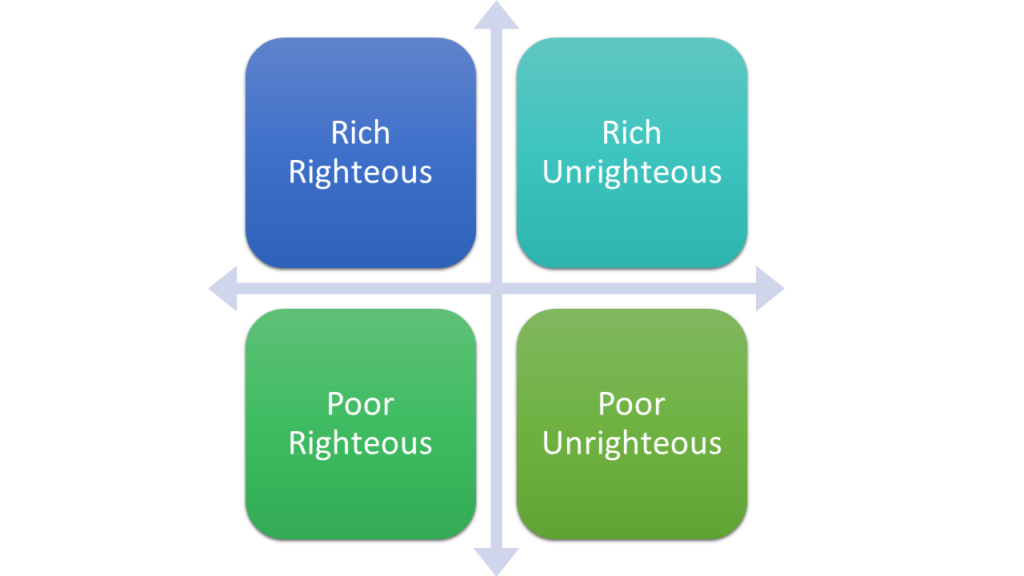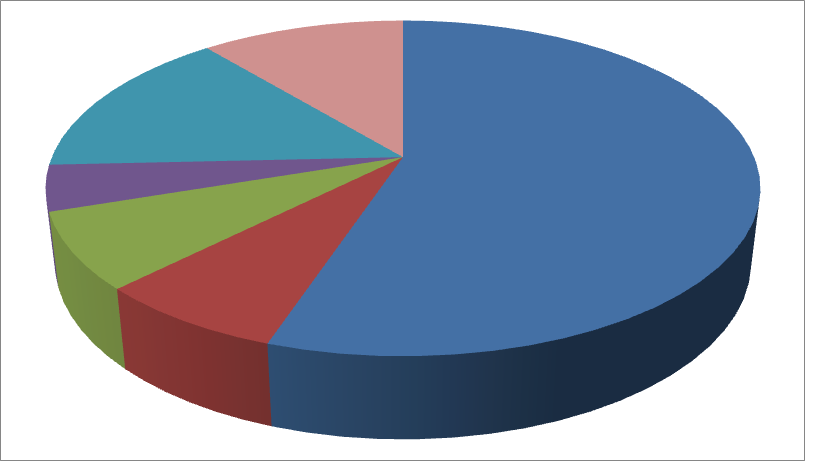Rich Young Ruler
The Rich Young Ruler
And behold, a man came up to him, saying, “Teacher, what good deed must I do to have eternal life?” And he said to him, “Why do you ask me about what is good? There is only one who is good. If you would enter life, keep the commandments.” He said to him, “Which ones?” And Jesus said, “You shall not murder, You shall not commit adultery, You shall not steal, You shall not bear false witness, Honor your father and mother, and, You shall love your neighbor as yourself.” The young man said to him, “All these I have kept. What do I still lack?” Jesus said to him, “If you would be perfect, go, sell what you possess and give to the poor, and you will have treasure in heaven; and come, follow me.” When the young man heard this he went away sorrowful, for he had great possessions.
And Jesus said to his disciples, “Truly, I say to you, only with difficulty will a rich person enter the kingdom of heaven. Again I tell you, it is easier for a camel to go through the eye of a needle than for a rich person to enter the kingdom of God.” When the disciples heard this, they were greatly astonished, saying, “Who then can be saved?” But Jesus looked at them and said, “With man this is impossible, but with God all things are possible.” Matthew 19:16-22 ESV

Image by shuttermon
This passage from Matthew is my second least favorite of all scriptures. I know you aren’t supposed to say you have a least favorite, but it is. Because it cuts deep. I may not be that rich young man, but I feel like I am the one next in line to talk to Jesus and I no longer want to ask my question. This rich young man has sins similar to mine. We both love the comfort money gives us. We both identify ourselves with our monetary success. (Let’s be honest, most men do. Not sure about the ladies) We are both hard pressed to give it all up to follow Jesus.
Passages like this one hurt because they point out the idols we have in our lives. Idols in this case are not little statues that we worship as false gods but are things we have given a higher priority in our lives over than Jesus. I spend more time thinking about my job and my money than I do about Jesus most of the time.
The rich young ruler was probably a giver, after all that is part of a pious life. I bet he was a regular, constant tither. But he wanted wanted his “stuff” more than he wanted to follow Jesus. I am sure I am projecting, but I can hear the questions in his mind “Who would I be if I didn’t have my possessions? Certainly, he can’t mean that literally. Couldn’t I do much more good if I kept it and invested it and gave more?”
Of course, I don’t believe that Jesus is calling us all to a life of poverty, but I believe Jesus saw into this man’s heart and saw what he loved and what would prevent him from being his disciple. He saw his love of money.
If you are someone, like I am, who is interested in becoming a good steward then you must constantly be vigilant that money has not become an idol for your. You must guard against your debt free life becoming more important than your walk with the Lord. It is a very fine line and a very easy trap to fall into.
Marriage and Money and Grace

Image by penywise
Last week I had an article with financial questions for marriage. These questions were meant to get good conversations started regarding marriage and money. I have handed them out in pre-marriage classes for a few years now and they have gotten good reviews from the couples that have used them.
It is incredibly important for engaged couples to discuss spiritual, sexual and financial histories, but there must be grace for mistakes made with money just as there would be for ones sinful sexual history.
It is understood fairly well in our churches today that there is grace for sexual sin. Our sinful nature, being what it is, all couples have some sort of sexual sin in their past that they have to work through. We talk about it and plan for it. However we don’t offer the same opportunity to financial sins, we just don’t think it that serious.
That is because sexual sin doesn’t hang over our heads as obviously as our financial sins can. After all, as long as you are no longer sleeping with other person it is easy to think of those sins as in the past, not comprehending how they affect you every day. However, if you enter a marriage having lived selfishly with your money for years, you may come into the marriage with a substantial amount of debt. That debt will be staring you in the face every day until it is paid off which can be years after the honeymoon is over.
That can be a burden on a marriage, one spouse may begin to believe that they are paying (literally) for the sins of the other’s past. Our culture or our church does not do a good job of dealing with this aspect of marriage and money. For the general culture it is because crushing debt is as ubiquitous as premarital sex, and just as acceptable. For the church? It is partially because we have understood financial issues from the perspective of the culture, or perhaps it is because we just don’t talk about such things, or perhaps it is because we don’t have a good understanding of how the grace of God applied to that area of our lives as well.
My wife understood when we got married that she was getting my debt. It wasn’t a crushing amount, but it existed and since she came into our marriage without any debt it would have been easy for her to be arrogant about our financial situation. It may have been easy, but it wouldn’t have been Christ like. It took a few years to understand, but she had her own set of issues related to money. As we come to understand one another’s sins better it is a an opportunity to extend the grace of God to one another all over again. And that is what we are called to do in all areas of not just with marriage and money.
We have to understand the spiritual side of money, Jesus talked about it a lot and it wasn’t just how to save more and spend less. He talked about the effect it has on our hearts. He talked about what money can meant to us. But he also says “My grace is sufficient” for that as well. We are called to have that same grace with one another.
More budgeting: Biblical Stewardship

Image by McGoo84
Biblical stewardship is more than a good budget, saving and giving the right amount of money. It is about having a proper biblical relationship with money.
Our problems with money don’t begin when we spend more than we make; they begin when we forget that God must be at the center of this part of our lives. When you have no bigger purpose for your cash than your own enjoyment, you are already in money trouble. –Paul David Tripp, Sex and Money: Pleasures That Leave You Empty and Grace That Satisfies
I liked to say, when I was a youth pastor, “There is a non-smoking, virgin section of hell.” My point was that being a follower of Christ is more than just not doing the wrong things, or even doing the right things. It is easy to fall into this same trap with money. Most people who write about the money miss this point entirely. I wrote about money years ago and I missed this point a lot. It is why I want to write about biblical stewardship now. You can spend less than you make, pay off all of your debt and give the magic amount to your church and still not have God in the center of your financial life.
We each have some sinful way of looking at money; I look at money to keep me safe. I look at money to be my functional savior and it ends up being my master. How many of us are now working harder than we want to work to pay for things we purchased long ago or things we think we need to keep up with our neighbors. We can easily become slaves to our desire for money.
Some people have shunned money and taken on a poverty theology some have tried to use Jesus as their personal ATM loving money more than God. Both of these ideas are sinful and will lead us toward a sinful way of handling our money. We need to look at money as a tool to be used and stewarded just like anything else in our lives. Money should be used properly to the glory of God and that should be our goal as Christians.
Parable of the Sower and Stewardship
The Parable of the Sower and Stewardship
The parable of the sower is one of the toughest parables for me to read. Jesus really focuses in on my personal idols and it is a good but terribly difficult process.
As for what was sown among thorns, this is the one who hears the word, but the cares of the world and the deceitfulness of riches choke the word, and it proves unfruitful.
(Matthew 13:22 ESV)
This parable, particularly the section about the seed choked out by the “Cares of the world and the deceitfulness of money” is a strong warning to any Christian, like myself, who is interested in personal stewardship. It is easy for us to focus too much on money as an end in itself and not merely a means to an end. The end we should be focusing on is the progress of the gospel of Jesus Christ.

Image provided by funny-p
From a personal point I struggle with loving money and caring to much about things of this world. I wrestle with finding a balance between planning for the future of my children and being charitable with my money. I love my church, but when we were presented with the opportunity to purchase our church building, needing a huge down payment, my gut clenched.
I struggle with being charitable and giving to the work of God my church is doing. When the opportunity arises my love of money (in the bank especially) starts to reach out to choke me out. I know a lot of people struggle with this balance because I hear from them in my personal finance classes all the time asking how to balance the need for money in our culture with the Bible’s call to not serve money instead of God.
I don’t have a hard and fast answer. I wish I did. I have found that a Godly spouse is invaluable in pointing out your sinfulness and I constantly ask my wife if I am holding on too tight. She is good about telling me when I am being too stingy.
Me: Do you have an amount in your head you think we should give?
Wife: Yes, you go first.
Me: I was thinking X.
Wife: Oh, I was thinking 2X.
That usually helps me to know that the thorns are coming to choke me out.
I wish I had better answers for this topic; it is one that I am constantly processing and one I will probably write about more as time goes on. Jesus is constantly calling is to something greater than the temptations of this world. He constantly calls us to lay up our treasure in heaven and not in this world. Balancing that with the reality of needing money to survive should drive us to constant prayer and vigilance to ensure we are focusing our efforts in the right place.
Create a Budget
 So, you’ve read part one of this series you know why you should have a budget and how it can help you answer some fundamental questions. If you haven’t read it; read it now. In this article the question is “how do I create a budget?” If you have never actually had a written budget it may feel complex. Figuring out how to create a budget can feel confusing, but it doesn’t have to be.
So, you’ve read part one of this series you know why you should have a budget and how it can help you answer some fundamental questions. If you haven’t read it; read it now. In this article the question is “how do I create a budget?” If you have never actually had a written budget it may feel complex. Figuring out how to create a budget can feel confusing, but it doesn’t have to be.
When I talk with people one on one I usually recommend one or two methods depending on the preference of the individual. I will talk through both here.
Create a budget on Paper.
- Gather up all of your bills for the past month.
If you don’t have them from last month then keep them when they come this month. - Track every penny you spend.
Do it in a notebook, or keep receipts of your spending or use one debit card for all spending then use the statement to actually make your budget you won’t have to guess. - Put it down on paper.
If you don’t want to create your own there are plenty of places to find budget templates. However, searching those out may lead to more confusion so here is a simple budget template to get you started. - Fill in the green spaces that apply to you and the yellow column on the right will tell you what percentage of your income you are spending on any particular category.
- You may not need every single line so only use what suits you. I actually find it most useful to keep categories as broad as possible. But, you need to do what is right for you and knowing that takes experience, so play with it.
- My wife and I have gone through dozens of forms of budgets in our time of trying to organize our finances.
Create a budget with Mint.
- Mint is a free online personal finance program. (Also available on mobile platforms) It is owned by Intuit the same company that owns Quicken and many other programs. They have been in the business for a long time and they are very reputable and secure.
- Sign up for an account on mint.com
- Register your primary spending accounts
- Mint will automatically pull in your all of your account activity and automatically categorize it for you. (Watch out they are not always accurate)
- Use Mints built in budgeting feature to set up the categories for your spending. Mint will let you know how much you have left in every category. You can even set up a alerts to let you know.
Having a budget down on paper, even digital paper is the first step in getting your personal finances under control. There is something about actually writing things down that acts as a commitment device. But, understand that a budget isn’t set in stone. Month to month things may vary and you will have to account for that. For the first few months you should keep a close eye on things and maybe make adjustments as needed.
Biblical Stewardship

Image by Mompes
Biblical stewardship is what this blog is all about. which has to do with heart and mindset as much as the practical approach to money. Stewardship is an unusual word in our age. Uless you are talking about environmental stewardship you won’t hear it much.
From a Christian perspective it is the understanding that you own nothing, but that everything belongs to the LORD; we have been temporarily entrusted with the proper use of those resources.
The dictionary definition of Stewardship is:
the conducting, supervising, or managing of something;especially: the careful and responsible management of something entrusted to one’s care.
The church at large has done a poor job at balancing concepts of biblical stewardship. Our views of how to handle money seem to flow with the larger economic situations. For example, during the booming growth of the 1990’s “prosperity” theology took off and crept into mainstream church thought. Now, during a recession many people are shunning such theology for a theology of poverty. I don’t believe either of these extremes is a realistic example of biblical stewardship. Biblical stewardship is the recognition that we own nothing, but are managers of God’s money and resources. We are to use our resources as God would like us to use them and and not allow money to take over our life choke out our fruitfulness. (Parable of the sower)
 Mark Driscoll and Gerry Breshears talk about four ways money can be stewarded in their book Doctrine They are broken down into two sets of two categories: Rich/Poor and Righteous/Unrighteous. Some people are rich and deal righteously with the treasure God has entrusted into their care. Some people are poor who do not handle their lot righteously. Stewardship is not something merely for the well to do. Both rich and poor are called to be good stewards of their money.
Mark Driscoll and Gerry Breshears talk about four ways money can be stewarded in their book Doctrine They are broken down into two sets of two categories: Rich/Poor and Righteous/Unrighteous. Some people are rich and deal righteously with the treasure God has entrusted into their care. Some people are poor who do not handle their lot righteously. Stewardship is not something merely for the well to do. Both rich and poor are called to be good stewards of their money.
Neither the circumstances of the global economy, nor our personal economy should determine how we steward the money entrusted to us. How we steward God’s money should be determined by the biblical principles God has laid out, humility and generosity. If you are a believer then all of your decisions. financial or otherwise, should be made in light of what the God of the universe has already given you in his Son. Working out the details is what this website is about. Subscribe and follow along on the journey as we look at both practical money saving advice as well as scriptural issues.
If you have just found this site take a look around…





